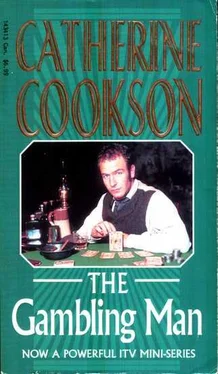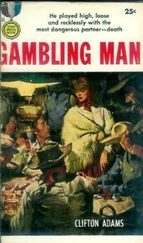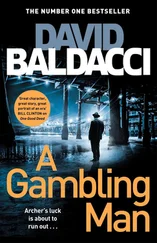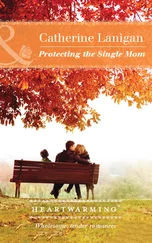She decided to go down to the drawing-room and play the piano for a while. This often had the power to soothe her nerves. Then she would take a bath, after which she might get to sleep without thinking.
It was as she was crossing the hall that she noticed the local paper neatly folded, together with a magazine, lying on a salver on the side table. She picked up both and went on into the drawing-room. But before laying them down she glanced at the news papers headlines: Shields Family Lost at Sea.
‘It is with deep regret that we hear of the terrible tragedy that has overtaken a Shields family on holiday on the coast of France. Mr Charles Buckham, his wife, three children and their nursemaid, Mrs Jane Connor, together with Mr Buckham’s brother are feared lost, after their yacht was caught in a great storm. Mrs Buckham’s body and that of one child were washed ashore, together with pieces of wreckage from the boat. There is little hope of any survivors . . .’
Mrs Jane Connor, nursemaid.
Mrs Jane Connor, nursemaid.
He had said she was nursemaid to the Buckhams. Yes, yes, it was the Buckhams of Westoe. She knew him, Charles Buckham, and she had met his wife a number of times, and . . . and there couldn’t be two nursemaids by the name of Jane Connor.
He hadn’t said his wife had gone away, but then she hadn’t spoken to him for weeks, not since he had startled her by saying he was married. She was sorry, very sorry . . .
Was she?
Of course she was, it was a terrible thing. Could she go to him now and tell him? What time was it? She swung round and looked at the clock on the mantelpiece. Quarter-to-nine. It was still light, yet she didn’t know exactly where the place was; but it was on the waterfront and would be dark by the time she got there.
She found herself walking up and down the room. Her stomach was churning with excitement. She said again, ‘What a tragedy! A terrible tragedy. And those poor young children.’
She suddenly stopped her pacing and, dropping into a chair, bent her body forward until her breasts were almost touching her knees. She mustn’t make herself ridiculous; nothing had altered, things stood as they had done a few minutes earlier.
Slowly she drew herself up and, taking in deep draughts of air, said to herself, ‘You can call tomorrow morning. It will be quite in order then for you to go and offer your condolences. He’s in your employ and naturally you have his concern at heart. Go and have a bath now and go to bed; you can do nothing until tomorrow.’
She had a bath and she went to bed, but it was almost dawn before she finally fell asleep. And she was still asleep when the maid came in with her early morning tea at eight o’clock.
She hardly gave herself time to drink the tea before she was out of bed dressing, and at nine o’clock she left the house, presumably to go to an early service. She had informed Jessie that she wouldn’t need the carriage, it was a fine morning and she preferred to walk.
The only answer Jessie could give to this was ‘Yes, miss,’ but the expression on her face told Charlotte that she considered that by breaking yet another rule she was letting the prestige of the family down; no one of any importance in this district went to church on foot.
Because the occasion demanded sobriety she had dressed in the black outfit she had worn to her father’s funeral and so she wasn’t conspicuous as she made her way from the residential quarter of Westoe to the long district lining the waterfront. Yet she did not pass without notice for she was tall and slim and her walk was purposeful as if she knew where she was going. But on this occasion she didn’t, at least not precisely.
Having almost reached the Lawe she stopped an old riverside man and asked him if he could direct her to Mr Connor’s boatyard.
‘Connor’s boatyard? Never knew no boatyard by that name along this stretch, ma’am. No Connor’s boatyard along here.’
‘It’s . . . it’s a small yard, I understand.’
‘Big or small, ma’am, none of that name.’
‘Mr Connor has only recently taken the yard over.’ Small yard, taken it over?’ The old man rubbed the stubble on his chin and said, ‘Oh aye, now I come to think of it, it’s old Barney Kilpatrick’s place. Oh aye, I heard tell of a young ’un startin’ up there. Takes some grit and guts to start on your own along this stretch. Well now, ma’am, you turn yourself round and go back yonder till you pass a space full of lumber, bits of boats . . . odds and ends. There’s cut at yon side atween a set of pailings, the gate Into Kilpatrick’s place is but a few steps down there.’
‘Thank you. Thank you very much.’
‘You’re welcome, ma’am. You’re welcome.’
She walked swiftly back along the potholed road, followed the directions the old man had given her and within a few minutes found herself opposite a wooden gate in a high fence of black sleepers.
The gate opened at a touch and she went through and stood for a moment looking at the ramshackle building before her. There were steps leading up to a door and, having mounted them, she knocked gently and waited. After a short interval she knocked again, harder now, and after knocking a third time she tried the handle and found the door locked.
She descended the steps and looked about her. There was evidence of a small boat being built. She walked into the slipway, then out again and stood looking up at the windows. She could see the place as a boatyard, even though it was very small, but as a residence, never. She gave a slight shudder. Being almost on the river’s edge it would be overrun with rats and so damp. And he lived here and had spoken of it with enthusiasm!
Where was he now? Most likely at his parents’ house. Of course, that’s where he would be. Well, she couldn’t go there . . . or could she?
‘You mustn’t. You mustn’t.’
She walked out of the yard, closing the gate behind her, and again she chastised herself, sternly now. ‘You mustn’t. You mustn’t. Please retain some sense of decorum.’
But it was such a long time until tomorrow. Would he come to work? Well, the only thing she could do was to wait and see, and if he didn’t put in an appearance, then she would go to his home. It would seem quite in order to do so then.
She walked slowly back through the town. People were making their way to the churches. There were a number of carriages in the market place adjacent to St. Hilda’s. She wondered for a moment whether she should go in there, then decided not to. What would she pray for? She mustn’t be a hypocrite. She’d always prided herself on being honest, at least to herself. She went to church, but she was no church-woman. She knew why more than half the congregation attended her own particular church. Their reasons were various, but had nothing to do with God and worship: to see and be seen; to make connections. It was an established fact that it did one no harm in the business world to belong to a congregation, especially if you paid substantially for your pew and had your name inscribed on a silver name-plate.
In her loneliest moments she warned herself against cynicism knowing that if she didn’t want to lose those few people who termed themselves her friends she must keep her radical opinions to herself. But oh, she had thought so often how wonderful it would be, how comforting to have someone with whom she could talk plainly. A male. Oh, yes a male, someone like . . .
When had she first thought of him in that way? All her life seemingly. Don’t be ridiculous. Well, four and a half years was a lifetime.
Sunday was a long day, and on Monday morning she was awake early and dressed for outdoors by eight o’clock, and by a quarter to nine she was seated behind the desk in the inner office in Tangard Street.
Читать дальше


![Дэвид Балдаччи - A Gambling Man [calibre]](/books/384314/devid-baldachchi-a-gambling-man-calibre-thumb.webp)









